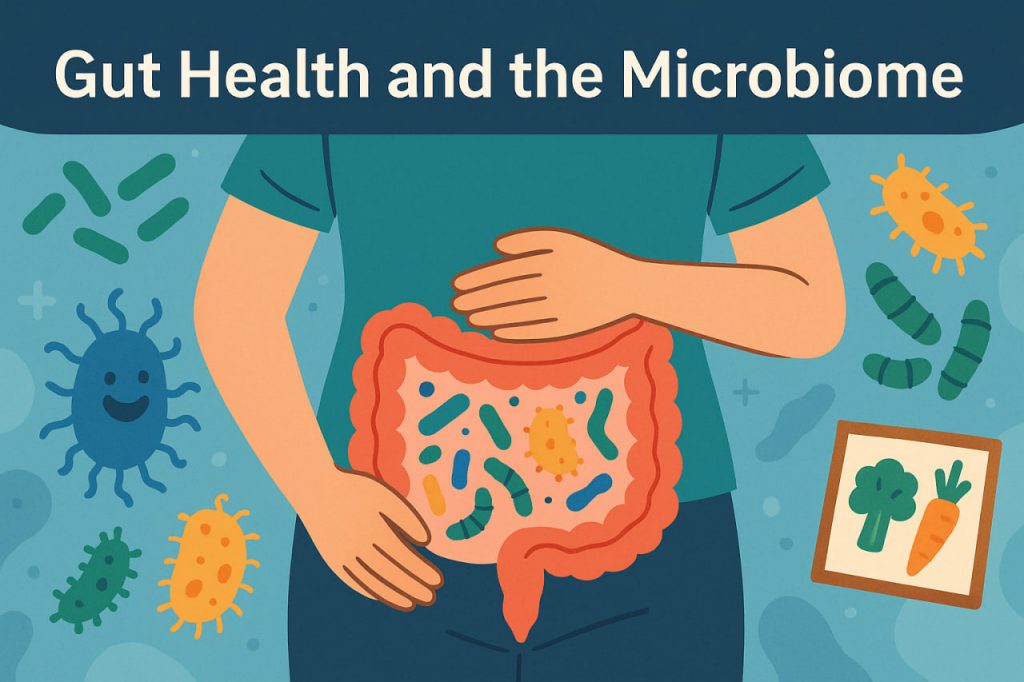Your gut is more than just a digestion system—it’s home to trillions of microorganisms that influence everything from your immune system to your mood. These microbes, collectively known as the gut microbiome, form a delicate ecosystem that plays a vital role in keeping you healthy. Understanding how to care for your gut can help prevent disease and improve your overall well-being.
What Is the Gut Microbiome?
The gut microbiome refers to the diverse community of bacteria, viruses, fungi, and other microorganisms that live in your intestinal tract, primarily in the colon. Most of them are beneficial or harmless, and they help your body in many important ways, including:
- Digesting certain fibers and plant compounds
- Producing vitamins, such as B12 and K
- Supporting the immune system
- Protecting against harmful bacteria
- Influencing mood and mental health through the gut-brain connection
Everyone’s microbiome is unique, shaped by genetics, diet, environment, and lifestyle.
Why Gut Health Is Important
When the gut microbiome is balanced and diverse, it helps the body maintain good digestion, energy levels, and immunity. However, an unhealthy or imbalanced microbiome—called dysbiosis—can contribute to:
- Constipation, bloating, or diarrhea
- Increased risk of infections
- Food intolerances or sensitivities
- Chronic inflammation
- Mood disorders like anxiety or depression
- Autoimmune diseases and metabolic conditions
Gut health is closely linked to the brain and nervous system, a connection known as the gut-brain axis.
How to Support a Healthy Gut
You can improve and maintain gut health with several key lifestyle habits:
- Eat a fiber-rich diet: Include fruits, vegetables, legumes, and whole grains to feed good bacteria.
- Consume fermented foods: Yogurt, kefir, sauerkraut, kimchi, and miso are rich in natural probiotics.
- Avoid excess sugar and processed foods: These can promote harmful bacteria.
- Stay hydrated: Water helps move food and waste through the digestive system.
- Exercise regularly: Physical activity supports microbial diversity.
- Manage stress: Chronic stress can negatively affect the gut microbiome.
- Use antibiotics wisely: Only take them when necessary, as they can kill good bacteria.
Some people may benefit from taking probiotic or prebiotic supplements, but it’s best to consult a healthcare provider first.
Warning Signs of an Unhealthy Gut
Common symptoms of poor gut health include:
- Frequent stomach discomfort
- Fatigue
- Bad breath
- Skin issues like eczema or acne
- Unexplained weight changes
- Food cravings, especially for sugar
If these signs persist, it may be time to evaluate your diet and speak with a specialist.
Glossary
- Microbiome – The community of microorganisms living in the body, especially the gut.
- Probiotics – Live beneficial bacteria that support gut health.
- Prebiotics – Fibers that feed good bacteria in the gut.
- Dysbiosis – An imbalance in the gut microbiome.
- Gut-brain axis – The communication link between the digestive system and the brain.


